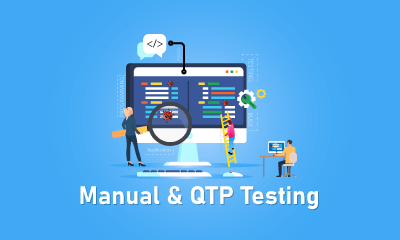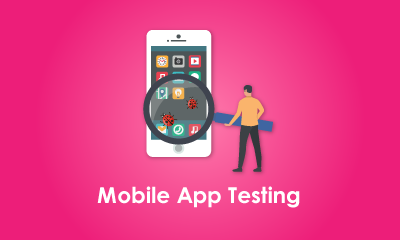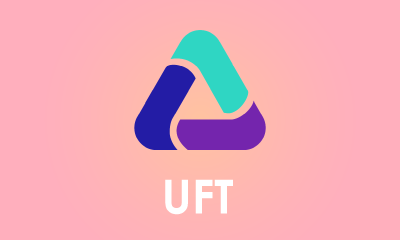- Home
- Blog
- ETL Testing
- Open Source ETL Tools

The Full form of ETL is Extract, Transform and Load. It is a process in which we format the extracted data to store or to refer to in the future. In the present technological era, “data” is important because almost every business is revolving around data.
The latest applications and working methodologies need live data for processing, so to fulfill those requirements, many open-source and commercial ETL tools are available in the market. In this article, we will study some open-source ETL Tools that are available in the market
What is ETL?
The full form of ETL is Extract, Transform and Load. It enables businesses to collect data from different sources, and integrate it into a single location. ETL makes different kinds of data work together. To perform these functions, we have various ETL Tools; they are:
| If you would like to become an ETL Testing certified professional, then visit Mindmajix - A Global online training platform: "ETL Testing Training Course" This course will help you to achieve excellence in this domain. |
List of ETL Tools
- JasperETL
- Apache Nifi
- Apache Camel
- Scriptella
- KETL Tool
- HPCC Systems
- Apatar
- GeoKettle
- Talend
- Stitch
- Pentaho Kettle ETL Tool
- Clover ETL Tool
- Informatica PowerCenter
- Jedox ETL Tool
- Xplenty
- IBM Infosphere Information Server
- Hevo- Suggested ETL Tool
1. JasperETL
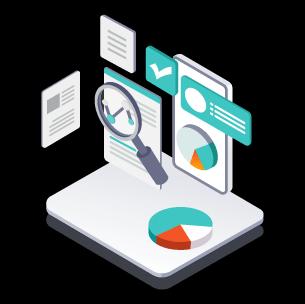
We call the Jaspersoft ETL tool JasperETL. It is an open-source data integration and ETL tool. It extracts, transforms, and loads data from different data sources into the data warehouse. It is a product of the Jaspersoft Business Intelligence(BI) collection. The following are the important features of JasperETL:
- It is an open-source ETL tool.
- It has connections with MongoDB, Hadoop, etc.
- It also has connections with SAP, SugarCRM, Salesforce.com, etc.
- It is good for small-size and medium-sized businesses.
- It has a Graphical editor for editing and viewing the ETL Processes.
- GUI enables the users to plan, design, and implement data transformations and movements.

2. Apache Nifi
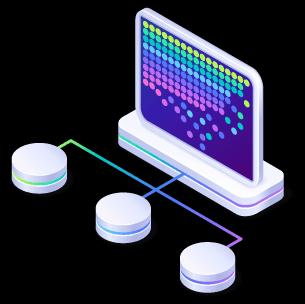
Apache Software Foundation developed the Apache Nifi tool. Apache Nifi eases the data flow among different systems through automation. Data flow contains processors and users can generate customized processors. Users can save the flow as templates and integrate it with complicated data flows. Following are the important features of Apache Nifi:
- It is an open-source tool.
- It is very simple to use and a strong system for the data flow.
- It supports SSL, HTTPS, SSH, etc.
- We can customize the GUI of the Apache Nifi according to our requirements.
- In Apache Nifi, we can track the end-to-end data flow.
3. Apache Camel

It is an Open-source ETL tool that assists the users to rapidly incorporate different systems that are producing or consuming the data. Important Features are as follows:
- It assists users in solving different kinds of integration patterns.
- This tool provides support to various data formats, enabling the users to translate the messages in different formats.
- It has several components that we use to access message queues, APIs, databases, etc.
4. Scriptella

Scriptella is an open-source ETL tool and also a script implementation tool. It is developed in java, and its main objective is simplicity. In this tool, we can carry out the required data transformations through SQL scripts. It executes the scripts written in Javascript, Velocity, SQL, and JEXL. Some Important features are:
- It enables the users to work with many data sources in one ETL file.
- It supports several JDBC features like prepared statements, batching, and parameters.
- It does not need any installation or deployment.
- It provides a Service Provider Interface(SPI) for interoperability with data sources and scripting languages.
5. KETL Tool

lla.org/download.htmlKETL is the best and most open-source ETL tool. KETL Data Integration Platform is built with movable java-supported architecture and XML-based configuration. KETL has all the features that are available in commercial ETL tools. Some important features are:
- It supports the incorporation of data management and data security tools.
- We don’t require any third-party dependency, notification, and scheduling tools.
- It provides scalability throughout Multiple CPUs and Servers.
6. HPCC Systems

HPCC Systems is an open-source ETL tool for Big data analysis. It has a data refinery engine known as “Thor”. Thor provides ETL functions like consuming structured/unstructured data, data hygiene, data profiling, etc. Through Roxie, many users can access the Thor refined data concurrently. Some important features of HPCC Systems ETL Tool are:
We can deploy this tool very easily.
- It provides machine learning algorithms for shared data.
- It provides free online support through forums, video tutorials, and detailed documentation.
- It provides API for Data Integration, Preparation, Duplicate Checking, etc.
7. Apatar

Apatar is an Open-source ETL tool that assists business developers and users in moving the data in and out of different data formats and sources. It brings powerful and innovative data integration for developers and end-users. Some Important Features are:
- It provides comfortable deployment options like mapping, visual job designer, and two-way integration.
- It enables connectivity to MySQL, Oracle, MS Access, and Sybase.
- It supports custom systems like source systems, Flat files, FTP logic.
- Apatar supports many languages like Chinese, Arabic, and Japanese.
[ Related Article: ETL Testing Tutorial ]
8. GeoKettle

It is a “spatially-enabled” edition of the Kettle(Pentaho Data Integration) ETL tool. It is a strong and metadata-driven spatial Extract, Transform and Load(ETL) tool. It integrates various data sources for updating and building data warehouses and geospatial databases. Some important features are:
- It is useful for automating iterative and complex data processing operations without creating a particular code.
- It allows extraction of the data from the data sources and transformations of the data for correcting the errors.
9. Talend

Talend is an us-based software company started in 2005, and its head office is in California, USA. Talend is the first data integration product, and it was launched in 2005. It supports data migration, profiling, and warehouse. Talend data integration platform supports data monitoring and integration. It also provides services like data management, data preparation, data integration, etc. Following are the important features of Talend:
- It is an open-source ETL tool.
- It provides a drag-and-drop interface.
- We can deploy it easily in the cloud environment.
- It has more than 900 built-in components to connect different data sources.
- It has an online user community to provide technical support to users.
- We can merge and transform the conventional data and Big data into the Talend Open Studio.
Note: We can use the Talend tool freely for 14 days(Free Trial), after that, we can buy it according to our requirements.
10. Stitch

Stitch is the first cloud-based open-source platform that enables users to move data rapidly. It is an easy and expandable ETL tool that is built for data groups. Some Important features are:
- It provides control and transparency to our data pipeline.
- It adds multiple users throughout our enterprise.
- It provides power to the users to analyze, govern and secure the data by decentralizing the data into the user's data infrastructure.
Note: We can use the Stitch ETL tool freely for 14 days, after that, we can buy it based on our requirements.
11. Pentaho Kettle ETL Tool

Pentaho kettle is the element of Pentaho, and it is useful to extract, transform and load the data. We can use the Kettle tool to migrate the data between the databases or applications. Through this tool, we can load the data into the databases. Some important features of this tool are:
- We can use the Kettle tool as an independent application.
- It is the most popular open-source ETL Tool.
- It supports various input and output formats.
- It also supports various open-source data engines.
Note: We can use Pentaho Kettle ETL Tool freely for 30 days, after that we can buy it based on our requirements.
12. Clover ETL Tool

Clover ETL tool assists midsize companies in handling difficult data management challenges. This tool provides a strong and comfortable environment for data-exhaustive operations. Some Important Features are:
- It is a semi-open-source ETL tool.
- It has a Java-based framework.
- It integrates the business data into one format from different sources.
- It supports Linux, Windows, AIX, and Solaris Platforms.
- This tool provides online support through Clover developers.
Note: We can use the Free Trial version of CloverDx for up to 45days.
[ Related Article: ETL testing interview Questions and Answers ]
13. Informatica PowerCenter

It is an ETL tool released by the Informatica Corporation. This tool provides capabilities for fetching and connecting data from various data sources. Some Important Features of Informatica PowerCenter are as follows:
- It has built-in intelligence for enhancing performance.
- It provides support for upgrading the Data Architecture.
- It provides code integration with explicit software configuration tools.
- It provides a distributed error logging system that provides logging errors.
Note: We can use the Free Trial Version of Informatica PowerCenter for 30 days.
14. Jedox ETL Tool

This tool is useful for handling the performance-keeping strategy plan, reporting, and processes that are present in ETL principles. It can overcome the difficulties of the OLAP(Online Analytical Processing) Investigation. Through this ETL Tool, we can transform any traditional model into OLAP Model.
Note: We can use the Free trial version of this tool for up to 14 days.
15. Xplenty

Xplenty is a cloud-based ETL Tool, and it provides visualized data pipelines for machine-driven data flows throughout an extensive range of destinations and sources. Features of Xplenty ETL Tool are:
- It prepares and centralizes the data for BI(Business Intelligence).
- It transforms and transfers the data between data warehouses or internal databases.
- It is the only salesforce ETL Tool.
- It sends extra third-party data to the salesforce or Heroku Postgres.
Note: We can use the Free Trial Version of Xplenty for up to 7 days.
16. IBM Infosphere Information Server

IBM Infosphere Information Server is a product of IBM, and it is the best data integration tool. It assists the users to understand and provide essential values to the business. It is useful for large-scale Enterprises. Some Important Features are:
- It is a commercial ETL tool.
- We can integrate this tool with IBM DB2 and Oracle System.
- It enhances data governance approaches.
- It assists the users in automating business processes.
17. Hevo- Suggested ETL Tool

Hevo is a no-code data pipeline ETL tool. It helps the users to move the data from any source(Cloud Applications, Databases, SDKs) to any destination. Some important features are:
- We can configure and run it in a few minutes.
- Hevo gives in detailed alert and monitoring features.
- Hevo is SOC II, HIPAA, and GDPR compliant.
Note: We can use the Free Trial version of this tool for up to 14 days.
Conclusion
In the ETL Process, we use ETL tools to extract the data from various data sources and transform the data into various data structures such that they suit the data warehouse. We have many open-source ETL tools, and we can use them according to our requirements. I hope this article provides you with the required information about open-source ETL tools.
If you have any queries, let us know by commenting in the below section.
 On-Job Support Service
On-Job Support Service
Online Work Support for your on-job roles.

Our work-support plans provide precise options as per your project tasks. Whether you are a newbie or an experienced professional seeking assistance in completing project tasks, we are here with the following plans to meet your custom needs:
- Pay Per Hour
- Pay Per Week
- Monthly
| Name | Dates | |
|---|---|---|
| ETL Testing Training | Feb 24 to Mar 11 | View Details |
| ETL Testing Training | Feb 28 to Mar 15 | View Details |
| ETL Testing Training | Mar 03 to Mar 18 | View Details |
| ETL Testing Training | Mar 07 to Mar 22 | View Details |

Hari Kiran is an accomplished Database Engineer with an extensive 17-year career spanning various IT domains, including healthcare, banking, project & portfolio management, and CRM. He brings a fervent dedication to PostgreSQL and has provided invaluable support to clients worldwide, offering expertise in database administration, enterprise deployments, security enhancements, backup and recovery strategies, and performance optimization. Hari has held positions at renowned organizations such as GE, EDB, Oracle, Optum, and 2ndQuadrant. Currently, Hari is leading Customer Success at pgEdge and continuing his Entrepreneurial journey with OpenSource DB. Additionally, he is a sought-after speaker at PostgreSQL conferences like FOSSASIA Summit, PGConf India/ASIA, and PGConf Down Under in Australia.







